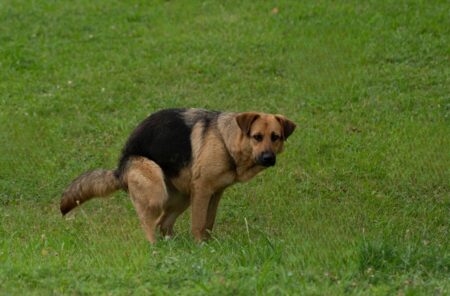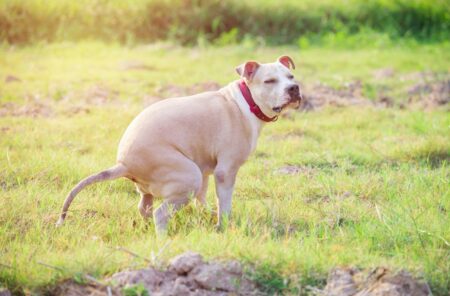What Home Remedy Can I Give My Dog For Diarrhea
Diarrhea is a common problem in dogs and can often be treated at home. However, it is important to speak to your vet first to make sure it is not caused by an underlying health condition and to determine the most appropriate course of action. Common home remedies for dog diarrhea that may help include feeding smaller and more frequent meals, adding a probiotic to their diet, adding boiled chicken and rice or boiled pumpkin to their diet, and adjusting their diet to a food that is easier to digest. Additionally, providing plenty of fresh water is important to make sure your dog remains hydrated.
What Home Remedy Can I Give My Dog For Diarrhea
One of the most common home remedies for treating dog diarrhea is boiled chicken and white rice. Boil the chicken until it is shredded and cut up the rice into small pieces. Mix together and add a small amount of canned pumpkin to the mix. This will help firm up the dog’s stool while providing essential vitamins and minerals. For more serious diarrhea, the dog may require over-the-counter medication, so be sure to consult your veterinarian before using any home remedies. Additionally, it is important to avoid human medications such as ibuprofen or acetaminophen, as these are dangerous for dogs and can make diarrhea worse.
What Cleans Dog Diarrhea?
Cleaning up dog diarrhea can be a messy job, but it is important in order to keep your home and your pet healthy. The best way to clean your pet’s diarrhea is to first remove as much of the solid waste as possible with a paper towel or other absorbent material. Once you have removed the solid waste, blot up the liquid waste with an absorbent material, and then clean the affected area with a pet-safe household cleaner or a diluted mixture of 1 part vinegar to 4 parts water. Finish the job by rinsing the area thoroughly with clean water and blotting it dry.
My Dog Has Diarrhea But Is Acting Fine
If your dog has diarrhea but is acting fine, it is best to contact your veterinarian. Your veterinarian will help you assess the cause of the diarrhea and develop a plan of action to help your pet recover. It is also important to withhold food for 12-24 hours and keep your dog hydrated, offering frequent, small amounts of water.
Why Does My Dog Have Diarrhea?
There are several potential causes of diarrhea in dogs. The most common include dietary indiscretion, a sudden change in diet, intolerance or allergy to a particular food, intestinal parasites, infections, toxins, stress, metabolic diseases, and some medications. It is important to identify the cause of the diarrhea in order to determine the appropriate course of treatment.
- Dietary indiscretion: Dogs have an inquisitive nature and will often eat things they shouldn’t. This could include spoilt food, substances in the home, plants, chemicals, medications, or garbage. Eating such things can cause an upset stomach with symptoms such as vomiting, nausea, or diarrhea.
- Sudden change in diet: A sudden change in diet can also cause an upset stomach. This is especially true if the new food is high in fiber. Dogs may take some time to adjust to new foods so introducing them gradually is recommended.
- Intolerance/allergy: An intolerance or allergy to a particular food can also cause digestive upset. Common allergy-causing ingredients include beef, dairy, wheat, and yeast. It is important to feed a diet that does not contain any of these ingredients and to monitor the ingredients for any changes in your pet’s diet.
When Should I Be Concerned About My Dog’s Diarrhea?
You should be concerned about your dog’s diarrhea if it persists for more than two days or is bloody or very watery. Contact your veterinarian for further advice.
When Is Dog Diarrhea An Emergency
Dog diarrhea can be an emergency if it is accompanied by other concerning symptoms such as bloody stool, lethargy, vomiting, excessive thirst, fever, and/or inability to pass stool. If any of these symptoms occur, it is crucial to consult your veterinarian as soon as possible for appropriate evaluation and treatment. Chronic cases of diarrhea can also become an emergency if the condition is not responding to treatment and the dog is losing too much water and electrolytes from diarrhea.
Symptoms of Doggy Diarrhea
- Loose, Watery Stools: Diarrhea can have many causes, but most commonly it gives the stools a softer consistency which can sometimes even be watery.
- Increased Frequency: Dogs with diarrhea will usually need to go out more to eliminate it and may have frequent accidents in the house.
- Straining: Diarrhea can cause a dog to strain to eliminate, and may even result in a rectal prolapse in some cases.
- Abdominal Pain: Dogs with severe diarrhea may suffer from cramping and abdominal pain.
- Dehydration: Loose stools can cause your dog to become dehydrated very quickly, so be sure to keep them hydrated if they are having diarrhea.
- Weight Loss: Severe diarrhea can cause weight loss if not treated quickly and aggressively.
- Loss of Appetite: Dogs with diarrhea may not be interested in food, so it’s important to encourage them to eat when they do feel hungry.
- Blood in the Stool: If you notice increased amounts of mucus or even blood in the stool, you should see a veterinarian as soon as possible.
What Should Good Dog Poop Look Like?
Good dog poop should be firm, tubular in shape, and usually dark in color. There should be no chunks or irregularities in the shape. The consistency should be pasty, free of any odd odors or discoloration, and should not contain any undigested pieces of food.
What To Give A Dog For Diarrhea
If your dog has diarrhea, it’s best to speak with your vet for the best advice. In most cases, they will provide a prescription medication to address the underlying issue. In addition to this, it is also important to make sure that your dog has plenty of fluids and you can avoid giving them food until the diarrhea has settled. Small amounts of a bland diet may help stop the diarrhea, such as boiled chicken or boiled white rice. You may also want to feed them a few tablespoons of plain canned pumpkin. This can help bind the stool and provide some nutrition. Be sure to speak with your vet before making changes to your pet’s diet.
Top 7 Dog Diarrhea Home Remedy Options
- Increasing Fluid Intake: When a dog has diarrhea, it’s important that they stay hydrated. Increasing the dog’s fluid intake can help, and this can be done by giving the dog small amounts of water or electrolyte replacement drinks.
- Non-spicy Chicken and Rice: Diarrhea can be a symptom of various gastrointestinal issues, and one of the best things you can do when your dog has diarrhea is to provide them with some bland food. Chicken and rice are a good combination for this as it contains easily digestible protein and carbohydrates.
- Plain Yogurt: Plain yogurt has beneficial bacteria that are good for dogs’ gastrointestinal tracts, and it can help ease diarrhea.
- Pumpkin: Canned or cooked pumpkin can help with diarrhea as it helps firm stools.
- Slippery Elm: Slippery elm is an herb that helps to coat the intestinal lining. It can help soothe the lining and promote healing.
- Acacia Gum: Acacia gum is a soluble fiber that can help absorb excess fluid in a dog’s digestive system and help firm up their stools.
- Probiotics: Probiotics help to increase the number of beneficial bacteria in a dog’s gastrointestinal tract. This helps to balance the levels of bacteria in the tract and can help reduce diarrhea symptoms.
Dog Diarrhea Home Remedy Imodium
Imodium is an over-the-counter medication used to treat diarrhea in dogs. Administered orally, it works by slowing the movement of the intestines and allowing water and electrolytes to be reabsorbed back into the body. Imodium is available in liquid or tablet form and can be given with or without food. It is important to talk to your veterinarian first to make sure it is safe to give your dog Imodium before administering it.
Dog Diarrhea Home Remedy Pumpkin
Pumpkin is a great natural home remedy for dog diarrhea. It is loaded with dietary fiber to help absorb excess fluid in the intestines and stop the diarrhea. To use pumpkin as a home remedy for dog diarrhea, simply mix one tablespoon of canned pumpkin or one-fourth cup of fresh, cooked pumpkin into your dog’s regular meal.
What Can Dogs Eat When They Have Diarrhea
When a dog has diarrhea, it should be given bland, easily-digestible foods such as cooked white rice, cooked hamburger (or other lean meat) with all fat and skin removed, natural canned pumpkin (not the pie filling), and boiled, skinned potatoes. They should be given small amounts frequently throughout the day. It is important to avoid giving table scraps, high-fat foods, processed cheese, and other foods that can be difficult for a dog’s digestive system.
What Home Remedy Can I Give My Puppy For Diarrhea
A home remedy you can give your puppy for diarrhea is a diet of boiled white rice and boiled chicken. You can also add plain, unsweetened yogurt to the diet, as it helps restore the natural balance of bacteria in the gastrointestinal tract. Be sure to provide plenty of fresh, cool water to help prevent dehydration. You may also want to consider giving your puppy a probiotic supplement to help re-establish balance in the gut.
How To Prevent Doggy Diarrhea
- Make sure that your dog has regular, balanced meals consisting of high-quality dog food.
- Take your dog for regular check-ups and follow your vet’s advice.
- Be aware of what your dog is eating. Keep snacks, bones, people’s food, and garbage out of reach.
- Clean up after your dog after they’ve had an accident since bacteria from the feces can cause gastrointestinal upsets.
- Keep your dog away from hazards like rat poison, toxic plants, potential allergens, stepped-on objects, and any other item that could make them sick.
- Wash your hands with soap after handling your dog, since bacterial and viral infections can be passed between humans and our pets.
- Make sure to get your dog vaccinated and de-wormed regularly.
- Exercise your pup and keep them at a healthy weight.
- Watch out for physical issues such as teeth, feet, and eye problems which can lead to digestive issues.
- Add a probiotic to your pet’s dishes to introduce beneficial bacteria into their gut environment.
FAQ
Q. What stops diarrhea quickly in dogs?
A. Diarrhea can usually be stopped quickly in dogs through the use of probiotics, a restricted diet, and medication. Probiotics can help restore the balance of good and bad bacteria in the dog’s digestive system, aiding in digestion and stopping diarrhea. A restricted diet, usually consisting of a bland diet of boiled chicken and white rice, can also help stop diarrhea.
Q. Can I give my dog anything for diarrhea?
A. No, you should not give your dog anything for diarrhea without consulting your veterinarian first. Your vet can suggest medication or dietary changes help alleviate your dog’s symptoms and properly diagnose the underlying cause of diarrhea.
Q. What home remedy can I give my dog for bloody diarrhea?
A. If your dog has bloody diarrhea, the best home remedy is to ensure that they have plenty of fluids and a safe place to rest. You can also add a teaspoon of cooked white rice mixed into their regular diet, which can help to firm up the stool and reduce symptoms.
Q. What can I give my dog for diarrhea naturally?
A. The best way to treat diarrhea in dogs naturally is to feed a bland diet made from boiled lean or white meats, such as boiled chicken and white rice. Adding probiotics, such as plain Greek yogurt, can also help to restore your dog’s natural balance of good and bad bacteria. Also, make sure your dog is drinking plenty of water because dehydration can worsen symptoms.
Conclusion
Although there are many natural home remedies for treating a dog with diarrhea, it is not advisable to give them to your pet without consulting with a veterinarian first. The veterinarian may prescribe more appropriate treatments based on the underlying cause and on the particular characteristics of the individual pet. Always seek medical advice from a reputable vet before trying any home remedy on your pet.


